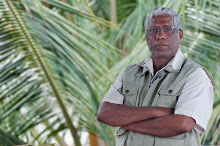"इंद्रायणी बचाव कृती समीती "
Warkaris (pilgrims) of the temple towns of Dehu and Alandi are now focusing their attention on the pollution of river Indrayani.
They have threatened to launch an agitation against the Pimpri- Chinchwad Municipal Corporation if the civic body fails to take proper measures to curb pollution.
The warkaris as well as various office-bearers of the temple trusts, non governmental organisations (NGOs) and others have together formed the Indrayani Bachao Kruti Samiti (save Indrayani action committee). The committee headed by warkari leaders will discuss and plan counter measures to reduce river pollution.
Members of the committee said that the municipal corporation was not taking adequate measures to reduce pollution. They said that the river was getting polluted due to discharge of industrial effluents from units which are mostly located in the Chikhli-Kudalwadi area. "Most of these industries are small scale enterprises which deal in scrap and tool-making and have no facilities to treat effluents," he said.
Mr Vikas Patil said that the committee will conduct another meeting on Thursday in Dehu to decide further course of action.
The committee is also planning to issue a deadline to the municipal corporation to curb pollution. If preventive steps are not taken, the warkaris will undertake a "bhajan" agitation at the municipal corporation, the committee members said.
However, the civic officials said that the temple towns, which incidentally are not in the municipal corporation limits, themselves need to take proper measures for reducing pollution. Bathing, washing of clothes and vehicles and direct release of sewage from these areas are major causes of river pollution, the officials said.
The Save Indrayani Action Committee (Indrayani Bachav Kruti Samiti), comprising of environment groups and warkaris, has decided to conduct a detailed study on the causes of pollution of the Indrayani river and support the local civic bodies take preventive measures with the help of the state government.
The action committee, which met at the temple town of Dehu on Thursday, decided to form different groups which will study the river from its origin near Lonavla to right up to where it joins the Bhima river.
Speaking to TOI, convenor of the action committee Vikas Patil said the study groups which consist of experts will document the reasons of pollution by clicking pictures, preparing short films and by collecting water samples. The study is expected to be completed by March next year. The report and the demands would then be submitted to the state government as also to government bodies, like the Maharashtra Pollution Control Board and the Pimpri-Chinchwad Municipal Corporation.
He admitted that local civic bodies such as the Lonavla Municipal Council, the Vadgaon Gram Panchayat, the Talegaon Municipal Council and the Dehu Gram Panchayat do not have necessary facilities to treat domestic effluents which get released in the river directly. However, he added, the action committee would assist the civic bodies in setting up these essential facilities with the help of the state government.
“We are not going to agitate against the civic bodies, but will try to help them out by getting in the required funds. We also want to create public awareness regarding river pollution,” he said.
Another study group would be examining geographical details of the river, its original width and the changes that have happened over time, he added.
While 19 environment groups attended the meeting on Thursday, he said more groups and citizens have expressed their desire to join in. According to Patil, the committee would also initiate a simililar project for other rivers in the city.

















